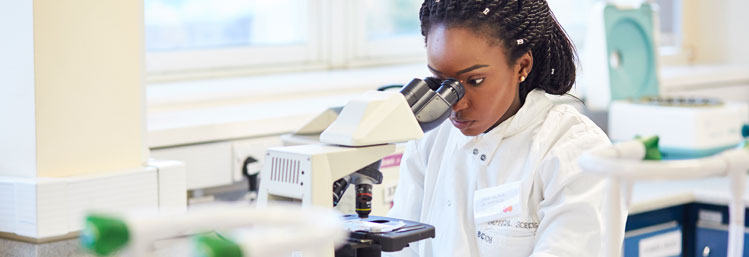
Drug Toxicology and Safety Pharmacology
MSc
- Duration
- Start date
- Location
Suitable for applications.
The course contains the perfect balance between theoretical learning in lectures and hands-on experience by putting our theoretical learning into practice. It has helped spark a greater in-depth interest and knowledge into science and science-related research.
Learning and assessment
A wide variety of teaching methods appropriate to the learning outcomes of the individual modules are employed throughout the programme and are supported by the virtual learning environment provided by the University.
Students will experience lectures from ICT research/teaching staff and visiting clinicians and industrial researchers, small group workshops, one-to-one tutorials and practical classes.
Students will also attend the Institute of Cancer Therapeutics Research Seminar programme. Self-directed independent learning forms a significant component at MSc level; students will be supported to develop the attributes and skills needed for life-long learning and continued professional development.
Directed private study will involve students in a variety of activities, which include directed reading of selected textbooks and specified source literature, use of the virtual learning environment (directed web-based materials), report writing, preparing presentations to deliver to peers, and other assignments.
